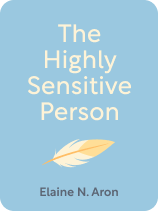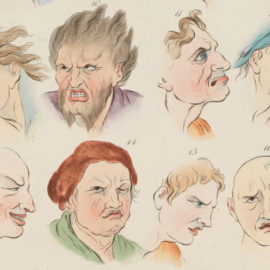

This article is an excerpt from the Shortform book guide to "The Highly Sensitive Person" by Elaine Aron. Shortform has the world's best summaries and analyses of books you should be reading.
Like this article? Sign up for a free trial here.
Is being a Highly Sensitive Person (HSP) a disorder? What medications can be used to help manage high sensitivity?
Although high sensitivity isn’t an illness, the difficulty of living in a society not built for the sensitive can cause distressing symptoms in HSPs. Medication can be a useful avenue for dealing with these symptoms, but it’s important to be informed about what you’re doing.
Here’s how to use medication to manage high sensitivity.
Consider Medication to Manage Your Sensitivity
Some HSPs might seek medication to change the way their sensitivity affects them. According to Elaine Aron, the author of The Highly Sensitive Person, some medications can be taken as needed to manage short-term overarousal. These are fast-acting anti-anxiety drugs, but they can make you sedated, and they’re addictive if taken for long periods. This includes medications like Valium and Xanax.
Other medications might be prescribed to manage long-term symptoms of sensitivity. These include antidepressants, such as Prozac and Zoloft, which take a few weeks to begin working and may be habit-forming—though they tend to be less addictive than the fast-acting anti-anxiety medications. These medications can help manage the effects of chronic overarousal, which tend to lead to depression.
Aron recommends learning as much as you can about these drugs and understanding what symptoms you want to treat before seeking medication, and she suggests finding a doctor who understands your trait and how these medications tend to affect sensitive people. She adds that there are natural ways to change your body’s chemistry such as herbal remedies, exercise, listening to music, and touch, among many others. Doctors aren’t likely to prescribe these methods, but they can be as or more effective than pharmaceuticals in managing symptoms of stress.
| Other Considerations and Alternatives to Medications There are many factors to consider when deciding whether or not to take medication as an HSP. Medications tend to have a stronger effect on HSPs, so you may need very low doses compared to non-HSPs. They may also feel pressured in medical settings to accept whatever treatment regimen their provider offers without thinking about it, so if you’re discussing medication with your doctor, let them know beforehand that you’ll need extra time to process all your information and options. Let’s look at some alternatives to the traditional medications Aron mentions. Some HSPs might self-medicate using cannabis or psychedelic drugs. Because these substances can amplify sensitivity, HSPs should be especially cautious about them and always begin with very small doses. Make sure you’re using them in a safe environment, and if you’re taking any medications, check with your doctor to make sure these substances won’t interact with them. Other HSPs have found that the best way to handle their anxiety or other negative feelings is by helping others, provided that it doesn’t interfere with their own self-care. Or they may respond better to eastern medicine that focuses more on naturally controlling the body’s energy to relieve symptoms and improve well-being. On her blog, Aron says HSPs can be at risk for overmedication because their high sensitivity can lead them to report more ailments and more severe symptoms to doctors, which they then prescribe more medication to treat. She also discusses pain medication for HSPs. Since they’re more susceptible to pain, HSPs are more likely to be prescribed pain medication in higher doses, and again, because of their sensitivity, that medication is likely to affect them more than it would the average person. |

———End of Preview———
Like what you just read? Read the rest of the world's best book summary and analysis of Elaine Aron's "The Highly Sensitive Person" at Shortform.
Here's what you'll find in our full The Highly Sensitive Person summary:
- The strengths and challenges associated with being a highly sensitive person
- How to manage your sensitivity in your personal, social, and professional life
- Why you should stop labeling yourself as "shy"






